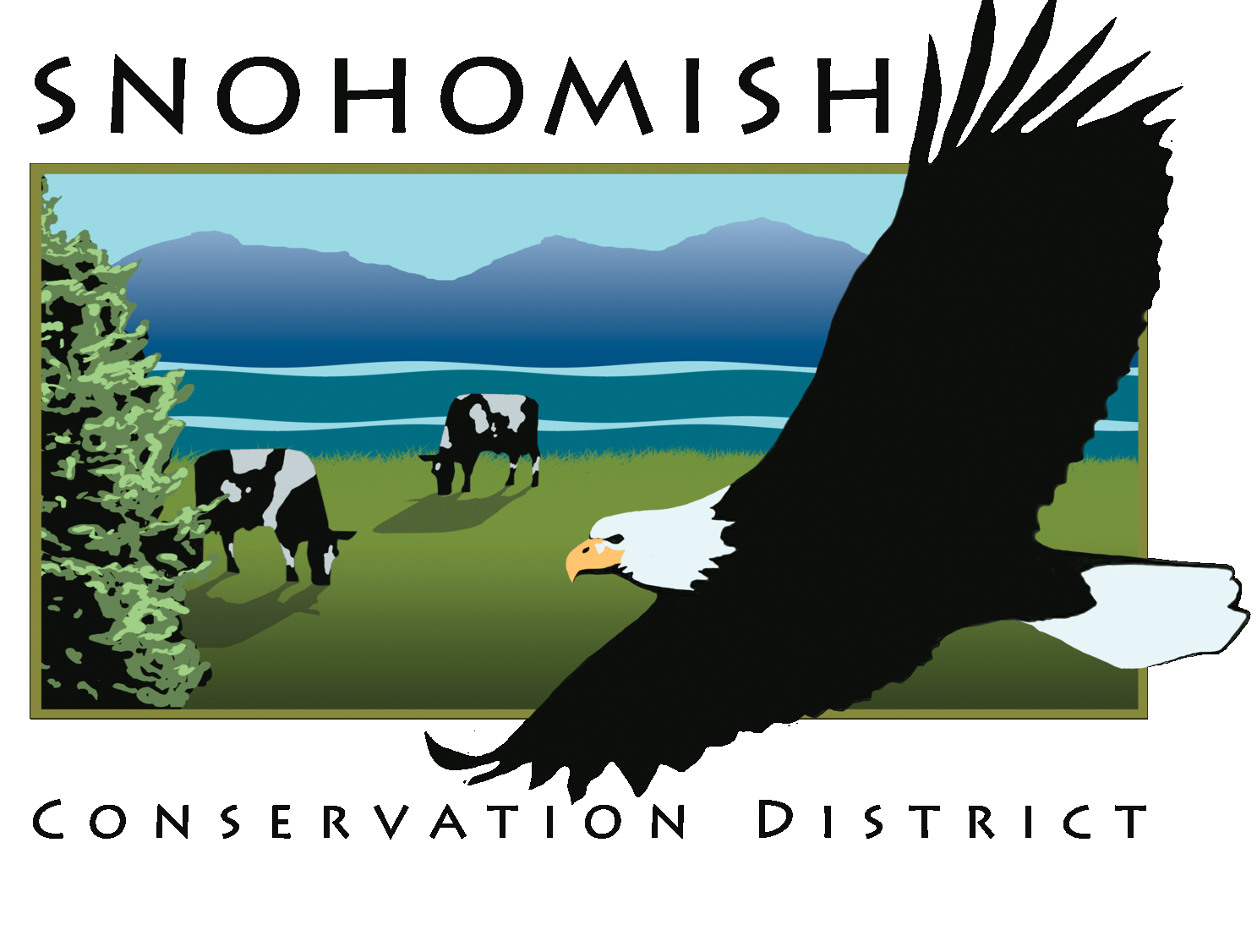Monica Van der Vieren | Human Sanctuary
/What's your connection to the land?
I live on a small, 100-year old farmstead with two horses. I was born and raised in the city, but after getting thrown out into the woods at a young age, learned that land and space is necessary for my quality of life. I have a day job in Central Puget Sound working with the public on large infrastructure projects, so my little postage stamp of a restoration project is a real a sanctuary for me. I have donated plant materials and plants for restoration projects and fundraisers. I am preparing to plant blueberries next year to see if I can begin a small U-pick operation for local food enthusiasts.
What actions have you taken as a steward that you're most proud of and/or that you feel have made the biggest difference?
One is to keep planting and let parts of my property turn into a bit of a jungle. A too-soggy paddock now overtaken by herbs, shrubs and trees is a haven for frogs, weasels, birds, and snakes. Marauding beavers occasionally trim back willows and fell logs. The vegetation provides cooling shade for my horses in the summer and a windbreak in the winter.
While some folks have to cultivate “tidy” because of local restrictions, many of us can have the rough, wild patch, the little jungle exploding with different plants. Many more can have tidy look in a natural way, not treating nature as an outdoor “room” for people, but a healthy place for critters of all kinds.
I’m also proud of my commitment as a volunteer presenter on the behalf of wildlife. For 13 years, I’ve been donating time and effort to teach people how to landscape for wildlife, and promoting use of our native plants in the garden. I keep working on my storytelling skills to inspire others. Every once in a while, I’ll run across someone who was inspired by one of my presentations to take action at home, school, work, or church. Some former audience members have carried on the tradition, giving their own presentations, starting blogs, or finding other ways to share with others.
When I receive honoraria for talks, I donate the funds to wildlife rehabilitation and education centers. I’m starting to look a little like the quintessential “crazy cat lady”, only it’s not cats, but owls, hawks, wolves and grizzly bears. I’ve started donating on behalf of kids I know so I leave a legacy and don’t seem quite so obsessive!
Finally, I’ve really enjoyed being able to work with the Snohomish Conservation District. When I wrote a letter supporting the initial proposal for a property assessment, I was completely authentic in my praise for the SCD’s very good works. The SCD provides an invaluable service throughout our County, leverages funding creatively, and looks to grow and innovate every year. The SCD engineers provided critical technical support when I was spearheading a tidegate/pump replacement and a culvert replacement. It’s been my pleasure to volunteer for the SCD, most recently helping make connections between the SCD and our Brightwater Center staff to offer a well-attended Natural Yard Care series.
What’s your hope for the next 75 years? And/or what advice do you have for those next 75 years?
I hope we learn to balance nature and technology, and to find our place in nature. There isn’t an app that replaces nature. We tried “better living through chemistry” and “there’s a pill for that” for the last 75 years. That didn’t work so well for us. But we still think we can conquer nature, only now it’s with technology.
Even outdoor recreation has changed from the contemplative to the competitive, and there is usually an electronic device involved. Nature is where our food comes from, where we learned to find our way and problem solve as humans, where we grew strong. Farms, forests, our waters, the mountains, the desert- they are still very important places for us to preserve for our future.
I encourage people to use technology: computers help maximize farm production, drones can monitor remote restoration areas, wildlife and forest growth, etc. But we should recognize these as tools, and remember there are many mysteries of nature we have yet to understand- and should not underestimate.
Anything else you want to share or feel is important?
I feel strongly that we shouldn’t see human activity in opposition to nature. I think it’s very important for us to look at creative, future-oriented ways to balance economic and population growth with food production and conservation of natural areas. We should be optimistic, innovative, and embrace change. I don’t believe in a monotonous, dystopian world like the one depicted in the movie Wall-E. I think we’re better than that. We can find ways to balance advancing technology, healthy economy, sustainable agriculture and even better natural environments.
Who are you?
- Name: Monica Van der Vieren
- Where is home? Snohomish River Valley, in the upper estuary, along Ebey Slough.
- Where are you from? Originally Chicago, IL. When I was 12, my family moved quite suddenly from a city of 10 million to a town of 100 people (if you could find them all) at Grand Portage, Minnesota. That’s where I learned to find a place in the natural world, with the Northern Lights in winter, the sound of ice breaking up on Lake Superior in the spring, and bear, wolves, deer, raccoons, moose, and so on. I gained a taste for pan-fried walleye pike, and learned to harvest smelt during the annual run, preserve berries, and to live with the land.

